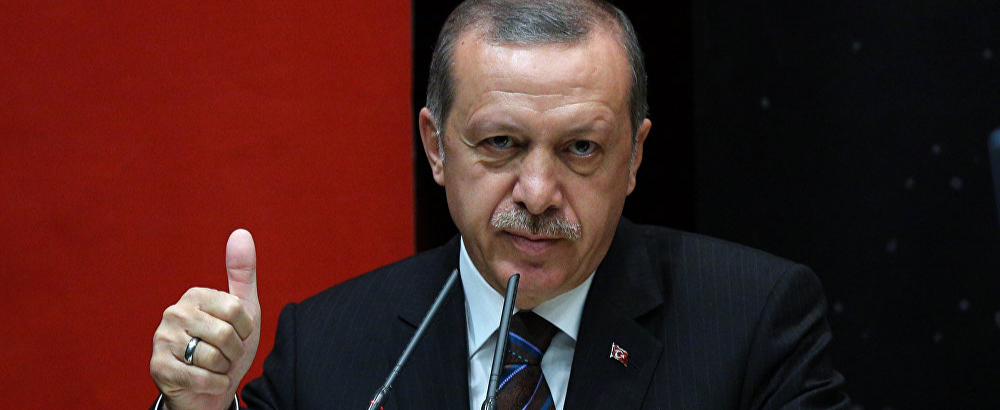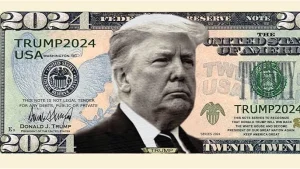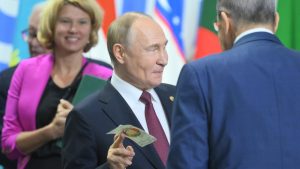EU Rejectee Applies to Join BRICS, China’s Feelings Are Mixed

Recently, a significant event with symbolic importance has occurred in international geopolitics. According to Bloomberg reports, Turkey has officially applied to join the BRICS countries. The report cited sources saying that the Turkish President Erdogan’s government believes that the “geopolitical center” has shifted away from developed countries. Analysts suggest that Turkey’s intention to join the BRICS stems from its decades-long unsuccessful attempts to join the EU, leading to disappointment with the EU, along with strained relations with the United States in recent years. Additionally, Turkey aims to establish relations with various “multipolar” countries to enhance its strategic autonomy.
Some perceive Turkey as an ordinary country and underestimate its importance. Therefore, it is necessary to reiterate why Turkey holds special strategic significance and is a highly valuable “brick” within the BRICS.
1. The Golden Brick in the BRICS: The Significance of Turkey
Geographical Location:
Turkey’s geopolitical importance largely stems from its unique geographical location. Situated at the crossroads of Asia and Europe, Turkey controls the strategically vital Bosporus and Dardanelles Straits between the Black Sea and the Mediterranean Sea. These waterways are among the world’s most crucial maritime chokepoints, making Turkey a bridge connecting Europe and Asia. Geographically, Turkey has been referred to as the “center of the world” since the time of the Ottoman Empire due to its ability to radiate influence over Western Europe, Central Europe, Russia, Central Asia, the Mediterranean, the Middle East, North Africa, and to some extent, South Asia. No other country possesses such a unique geographical position. In summary, Turkey’s special geographical location grants it irreplaceable strategic importance in military, economic, and energy transport aspects.
NATO Member:
Turkey joined NATO in 1952 and has been a crucial member ever since. Its invitation to NATO was aimed at containing Soviet expansion into the Mediterranean. Presently, Turkey boasts the second-largest military force within NATO. As a key player in the Eastern Mediterranean, the Middle East, and the Black Sea regions, Turkey’s role is indispensable in NATO’s security architecture. With Turkey’s distancing from the West, its decision to procure the S-100 air defense system from Russia in 2017 came as a shock to the US/NATO. This move allowed Russia insights into NATO’s military operations, communication protocols, radar signatures (such as NATO aircraft radar stealth technology), standards, and procedures, posing a significant security threat to NATO. While NATO initially hoped to use Turkey as a barrier against Russia, Russia managed to breach Turkey’s defenses. However, NATO’s options are limited; apart from symbolic US sanctions, they are reluctant to expel Turkey from NATO. This situation underscores Turkey’s strategic maneuvering capabilities. If Turkey were to join the BRICS, it would become the first NATO member to do so.
 Turkey is a member of NATO
Turkey is a member of NATO
Close Economic Relations with the EU:
Although Turkey failed to join the EU, it is a member of the EU Customs Union, making it a major trade partner for the EU and an integral part of European economic integration. The EU Customs Union allows Turkey to enjoy zero tariffs with EU member states on industrial and processed agricultural products, facilitating easy access for Turkish manufactured goods to the EU market. With a large population (85 million people) and a skilled workforce, and being a non-EU country (which means labor cannot freely move to the EU but remains in Turkey), Turkey has attracted foreign investments and created excellent opportunities for developing its domestic manufacturing sector.
Due to historical reasons, Turkey has the deepest relations with Germany among EU countries. After World War II, Germany greatly needed labor, and starting from the 1960s, a large number of Turkish people went to work in West Germany through the “guest worker program.” Today, around 3 million “German-Turks” live in Germany. Many German-Turks hold key positions in business, politics, and culture, further deepening the ties between the two countries. German companies are very familiar with Turkey and have made significant investments there, especially in the manufacturing, automotive, and banking sectors. Today, Turkey has become the “backyard” of EU/Germany in terms of manufacturing. Furthermore, Istanbul is one of Europe’s most important tourist cities, attracting thousands of Europeans for holidays and weekends.
 Turkey is a member of the EU Customs Union
Turkey is a member of the EU Customs Union
 Turkey and Germany
Turkey and Germany
Influence in Central Asian Turkic States:
Through history, culture, language, and more, Turkey maintains strong connections with the Turkic states of Central Asia (Azerbaijan, Kazakhstan, Uzbekistan, Kyrgyzstan, Turkmenistan, etc.). Apart from these sovereign states, Turkic people also constitute significant populations in several federal subjects within the Russian Federation (such as Tuva, Bashkortostan, Yakutia, Tatarstan, Altai) and in many countries across the Balkans, the Middle East, and Central Asia. Currently, the global Turkic-speaking population exceeds 300 million, making it a force in international geopolitics. Many Turkic states border China and are crucial countries on the Belt and Road initiative.
As the most powerful Turkic state, Turkey wields substantial political, economic, and cultural influence over these Turkic states and engages in comprehensive political, diplomatic, economic, cultural, and even military cooperation with these countries through platforms and mechanisms like the “Turkic Council” (headquartered in Istanbul) to pursue independent geopolitical objectives.
Similar to Turkey, Hungary is also expanding eastward in geopolitics, immediately looking towards Turkic states due to the presence of many Turkic descendants among its citizens. Thus, it currently participates in activities of the Turkic Council as an “observer.”

Radiating Arab countries, Linking Arab countries’ gateway:
Turkey has long been an important country in the Middle East region due to its geographical location and historical background. However, Turkey’s influence on Arab countries is primarily cultural: Turkish TV shows, movies, and music are highly popular in the Middle East and North African Arab countries. These works enhance Turkey’s cultural influence, giving Turkey a strong soft power to reach Arab country populations.
Regarding diplomacy, Turkey’s unique geographical location and its NATO military status (“an attack on one NATO member is an attack on all members”) coupled with its overall strength have made it very active in diplomatic affairs in the Middle East. Turkey has been vocal and involved in issues such as the Israel-Palestine conflict and the Syrian war, which has garnered support from Arab countries and their people.
Economically, Turkey has extensive trade relations with Arab countries in the Middle East and North Africa. On one hand, Turkey’s geographical location as a significant hub connecting Europe, Asia, and the Middle East facilitates its trade with the Arab world. On the other hand, as Arab countries in the Middle East lack a strong manufacturing base, Turkey’s developed manufacturing sector exports a large number of goods, including cars, machinery, household appliances, textiles, and food products to these countries. Earlier mentioned German investments in Turkey are, in fact, aimed at using Turkey as a gateway to and from the Middle East and North Africa.
Lastly, Turkey has significant investments in Arab countries in the Middle East and North Africa, especially in the construction and infrastructure sectors, and relies on importing oil and natural gas from the Middle East for energy. Additionally, Turkey is an important tourism destination for Arab/Middle Eastern countries. Walking down the streets of Istanbul, one can find countless Middle Eastern tourists from various countries.
Having Significant Influence in the Islamic World:
Turkey is an important country in the Islamic world. The Islamic world has three strong centers: Saudi Arabia (Arab world), Iran (Persian/Shiite), and Turkey (Turkic). The competition among these three major countries is also a struggle for leadership in the Islamic world. On significant issues, such as the Palestine problem, all three countries aspire to play a leading role to enhance their positions among Islamic nations.
Historically, Turkey is the successor of the Ottoman Empire, which at its peak ruled vast Muslim regions including the Middle East, North Africa, and the Balkan Peninsula for over 600 years. The Ottoman Empire’s caliphate system also made it one of the leaders in the Islamic world. This historical legacy, despite Turkey being a secular state, still gives Turkey a unique position in the Islamic world. Especially in recent years, Turkey’s trend towards Islamization has attracted attention both within and outside the Islamic world.
The Erdogan government is consciously seeking to enhance Turkey’s leadership position in the Islamic world by restoring the cultural heritage and religious traditions of the Ottoman Empire (known as “Neo-Ottomanism”). In recent years, a Turkish TV series called “Resurrection: Ertuğrul” (five seasons, 150 episodes, Turkey’s version of “Game of Thrones”) portrayed the story of Ertuğrul, the father of Osman I. This series was widely popular across the Islamic world (from Afghanistan to Pakistan to Bangladesh to India to Malaysia, but banned in some Arab countries due to revisionist “Neo-Ottomanism”), showcasing Turkey’s cultural influence.
As an economically powerful Islamic country, Turkey is an active member of the Organization of Islamic Cooperation (OIC) and engages in economic and technological cooperation with other Islamic nations, thereby increasing Turkey’s economic influence. Additionally, Turkey provides significant humanitarian aid to Islamic countries worldwide, further strengthening its image and influence in the Islamic world.
The Status of Turkish Airlines

Many friends traveling to Europe and Africa have found themselves flying with Turkish Airlines. With its extensive routes, excellent service, and affordable prices, Turkish Airlines is a very good choice. In this regard, Turkey has fully utilized its unique geographical location, developing Turkish Airlines (and Istanbul) into a hub connecting Europe, the Middle East, Africa, Asia, and other regions, significantly enhancing Turkey’s global influence. This has also propelled Turkey to become an important global tourism destination, transportation center, logistics hub, and more.
Visitors to Istanbul will discover the immense importance of tourism to Turkey. Turkish Airlines has made a tremendous contribution to Turkish tourism: it attracts a large number of international visitors, drives the development of Turkey’s hospitality, food and beverage, retail, and other tourism industries, and creates numerous employment opportunities. Internationally, Turkish Airlines’ extensive routes covering many destinations are crucial resources for the economic, trade, tourism, and cultural development of many countries. Through the airline, Turkey has deepened its connections with various nations, advanced its geopolitical goals, and achieved mutual benefits. In the air, Turkish Airlines serves as Turkey’s “business card,” showcasing Turkey’s culture, economy, technological prowess, and national image on the global stage.
Relationship with Russia:
Turkey has maintained a close relationship with Russia, which has become even more significant following its distancing from the US/West. 1) Militarily, Turkish-Russian military and security cooperation has deepened over the years. In 2017, Turkey disregarded opposition from the US/West and purchased the Russian S-400 missile defense system. On the issue of Syria, Turkey and Russia closely cooperate through diplomatic and military channels. 2) Energy: Russia is Turkey’s largest natural gas supplier, with most of Turkey’s imported natural gas from Russia being transported through the TurkStream pipeline. This project, launched in 2020, involves an undersea pipeline laid on the bottom of the Black Sea, delivering Russian gas directly to Turkey and beyond into Southern Europe. TurkStream enhances energy cooperation between the two countries and increases Turkey’s significance as a European energy hub. 3) Nuclear energy: The Akkuyu Nuclear Power Plant in southern Turkey, the country’s first nuclear power plant, is being constructed with the involvement of the Russian state atomic energy corporation, Rosatom. Once completed, it is expected to provide around 10% of Turkey’s electricity needs. 4) Trade: Russia is an important trading partner for Turkey, with Turkey importing resources like oil, natural gas, wheat, and steel from Russia, while Russia imports food, machinery, textiles, and other goods from Turkey. 5) Tourism: Turkey is one of the favorite holiday destinations for Russian tourists, with millions of Russians visiting Turkey each year. A visit to Istanbul reveals it as a major crossroads, attracting not only Germans and Americans but also Russians. Since the Russia-Ukraine conflict, many Russians have also relocated to Turkey for development opportunities.
In summary, in recent years, Turkey has distanced itself from the US/West while drawing closer to Russia. The relationship between the two countries has not been affected by the Russia-Ukraine war. While the US and the West do not want to see Turkey getting closer to Russia, fearing Russian influence in Turkey, they also cannot afford to abandon Turkey as doing so would mean handing over influence to Russia. As a result, the US/West can only attempt to pull Turkey closer by increasing their stakes and balancing Turkey’s mutually beneficial cooperation with Russia. Ultimately, Turkey benefits from this situation.
In conclusion, Turkey wields significant influence over many countries, regions, and factions. Turkey excels at leveraging its unique position to play various major powers against each other. This has allowed Turkey to position itself as a crucial weight on the balance, influencing the interests of all parties and shaping the overall landscape while pursuing strategies that maximize its own interests.
2. Turkey is breaking away from the American/Western/unipolar world and turning towards the global South/multi-level world
After reading the first part, one should be able to see the special importance of Turkey. Those who have long been following international politics know that Turkey has always hoped to lean towards the American/Western camp. However, moving towards the American/Western camp essentially means moving closer to the “unipolar” world dominated by the United States, seeking a position (even if a lower one) in this geopolitical order to gain political, economic, developmental, security, and other benefits. Moving towards the West and becoming a “modernized” secular state has also been a major roadmap set by Turkey’s founding father, Kemal Atatürk, at the beginning of the country’s establishment.
However, this plan to move towards the West has now failed. Firstly, Turkey’s attempt to join the European Union has encountered a decisive failure, for a very simple reason: Europeans cannot accept a Muslim country with a population of 85 million into the EU. In fact, from the very beginning, Turkey never had the possibility of joining the EU; all the negotiations over the years were just for show, leaving the Turkish people feeling hurt. After the 2016 coup, Erdogan’s Turkish government effectively said goodbye to the United States as well. Since then, Turkey has gained a deeper understanding of human history, global trends, and the direction of the nation.
Superficially, Turkey still maintains relations with the American/Western world. Turkey’s core skill of being “diplomatic” lies in maximizing its geopolitical gains through skillful unilateral and multilateral maneuvers, thereby enhancing its international status and influence to the maximum extent. These capabilities have enabled Turkey to wield influence far beyond its own national power. Nonetheless, one thing is certain: Turkey is moving in a different direction, shifting from the “unipolar world” dominated by the United States to the “multi-level world” represented by countries like China, Russia, and India.
In the “unipolar world” led by the United States, essentially, there can only be one underlying ideology, one political civilization, one political system, one political economy. In this order, the United States is the leader, possessing ultimate interpretative power, discretion, leadership, and disposal power, in other words—dominance. The “sidekicks” who join this order can gain certain benefits—from economic profits to security protection. However, the gains of these “sidekicks” cannot surpass those of the leader; their will cannot go against the leader, and their fundamental logic cannot deviate from the leader. Those who oppose the leader will face ruthless punishment. The logic of empires and that of the underworld are quite similar.
In the “multi-level world” order, it doesn’t matter who leads, there are just some major representative countries (such as China). In the multi-level world, there is no uniform ideology, political form, political system, or political economy, and there is no one trying to change another. Each country seeks and determines its own path based on its historical traditions, social forms, national characteristics, etc. It’s a platform for diverse voices and blossoming of ideas. The “BRICS countries” are the most essential cross-national platform in the “multi-level world,” where major powers come together to discuss development, cooperation, security, and the future. It can be said that if there is one truly unified view among countries, it is that everyone opposes the American-dominated unipolar world or, in other words, opposes American hegemony.
The “BRICS countries” (BRICS) no longer consist only of Brazil, Russia, India, China, and South Africa. Egypt, Ethiopia, Iran, and the United Arab Emirates have also joined.
Turkey has a clear understanding that it is best suited for this “club.” Its future lies within this club, and it should have been a part of it from the beginning. Becoming a part of the BRICS countries will maximize Turkey’s geopolitical gains. Personally, I believe Turkey’s judgment is very accurate, and it should have done this long ago.
It should be noted that Turkey’s adept diplomacy is extremely shrewd. As a nation, their “specialty” lies in maximizing their strategic value, making all parties dependent on them, and becoming a key player that everyone at the negotiation table wants to woo, afraid to offend. The Turkish people have played this game to perfection.
According to this logic, NATO membership is Turkey’s greatest political asset. Joining the BRICS countries under this status can bring special value to the platform. With BRICS membership, Turkey also hopes to expand its bargaining power with the United States/Europe.
Turkey’s special strategic value is clear. Based on this, Turkey’s inclusion will be a victory for the BRICS platform and a victory for the multi-level world order and multi-level power. It is widely known that China has always played a leading role in the BRICS platform and is a key driver of BRICS expansion. Turkey’s inclusion is essentially a victory for China in the international geopolitical arena.
Looking ahead, considering Turkey’s NATO military status (a special “back door”), close economic ties with EU countries, gateway to the economies of Central Asia, the Middle East, and North Africa, influence over the Turkic and Islamic worlds, diplomatic discourse power with Russia in Middle Eastern affairs, and its large market (85 million population), the Chinese government should also pay attention to strengthening its bilateral relations with Turkey.
At the same time, Chinese companies and capital should also recognize Turkey’s special strategic value. In this regard, two companies are leading the way: Huawei, which has established the second largest overseas research and development center in Turkey and has significant influence locally, and Alibaba, which has invested in the Turkish e-commerce platform Trendyol, radiating influence across Europe, the Middle East/North Africa, Central Asia, and Russia. In the future, Chinese companies can further study Turkey’s unique geographical, political, and economic advantages and leverage Turkey’s special value in their international expansion. Relevant departments of the Chinese government can also use multilateral platforms (BRICS) and bilateral platforms to better support Chinese companies.
Editor: Leo Cai
https://mp.weixin.qq.com/s/q0t4awMXLMQMKXIYXrAyjQ



